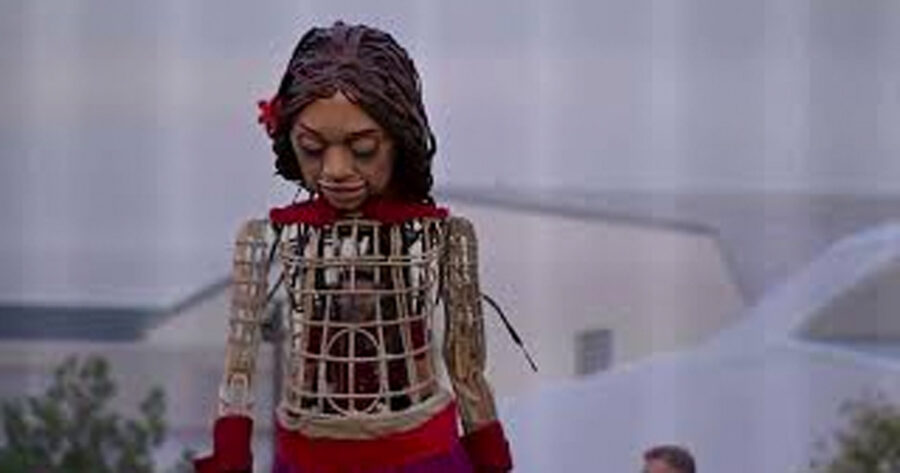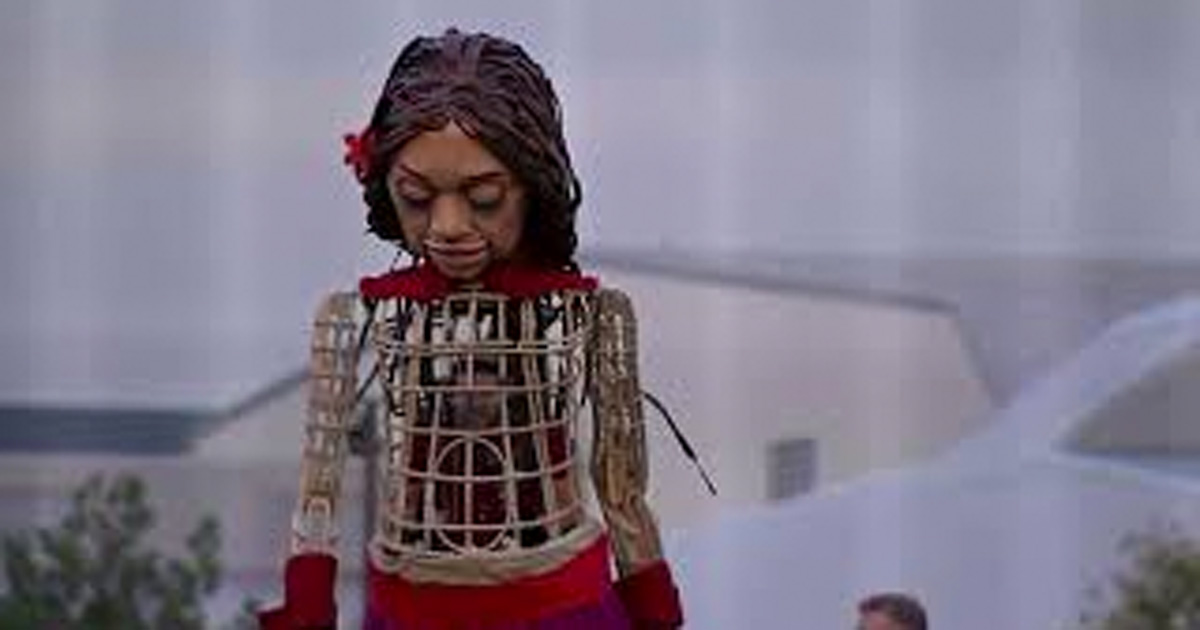
Cape Town Company’s Giant 3.5m Puppet Arrives at COP26
Yesterday, Tuesday 9 November, a giant puppet called Little Amal – who was created by a South African company – was centre stage at the Glasgow COP26 talks. After walking thousands of miles across Europe from Turkey, Little Amal reached the COP26 talks to raise awareness of the plight of refugee children on the front […]

Yesterday, Tuesday 9 November, a giant puppet called Little Amal – who was created by a South African company – was centre stage at the Glasgow COP26 talks. After walking thousands of miles across Europe from Turkey, Little Amal reached the COP26 talks to raise awareness of the plight of refugee children on the front line of climate change.
The Handspring Puppet Company, based in Cape Town, created Little Amal, who began her journey on July 27 in Gaziantep, Turkey, near the Syrian border. She has followed in the footsteps of thousands of refugees throughout Europe – making stops in cities such as Rome, Paris and London.
According to Handspring Puppet, creators of the famous War Horse puppets, Little Amal is one of the most ambitious public artworks ever attempted. The company’s founders, Adrian Kohler and Basil Jones, actually came out of retirement to help create and build Little Amal!
Handspring Puppet’s founder Basil Jones said: “We are doing something unprecedented. It’s part of the reason why we came out of retirement and took on this project. It’s such an important thing to do, such an exciting challenge.”
On Gender Day, the 3.5 meter (11 feet) tall Amal – a figure representing a young nine-year-old Syrian girl refugee – opened the plenary session of the talks, together with Samoan climate activist Brianna Fruean.
Before the audience of climate negotiators, the pair exchanged gifts – a flower, representing light and hope, from Fruean and a bag of seeds from Little Amal (who is named after the Arabic word for hope).
President of the climate talks Alok Sharma of host nation Britain said gender and climate were “profoundly intertwined.”
“We know that the impact of climate change affects women and girls disproportionately,” he said, adding that attempts to tackle climate change were more effective when women and girls were put at the center of those efforts.
After leaving the conference hall, Little Amal was led away by her puppeteers to meet other climate campaigners across the bridge from the summit venue.
As well as the seeds, she has delivered to the talks an open letter, organized by climate campaigners Avaaz, calling for urgent emission cuts and signed by 1.8 million people around the world.
The refugee puppet is operated by three people – one inside, and two moving her arms, with a small computer operating her eyes. Three versions of Little Amal were created and a dozen puppet operators took turns across the long journey. Her body’s made from moulded cane and her head, arms and legs are carbon fibre.
